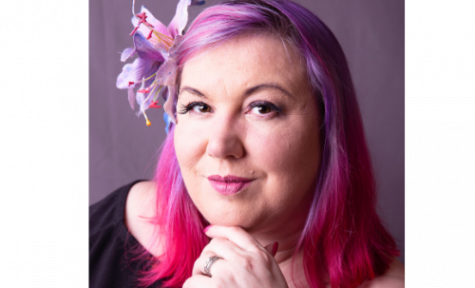23 October 2024
Practical steps to support staff experiencing menopause

Around one in three women in the UK are either currently going through or have reached the menopause. Around two thirds of those experience a negative impact on their work. One in ten leave as a result.
With an 80% female workforce, half of whom are aged 40-55, menopause has become a hot topic for Betsi Cadwaladr University Health Board (BCUHB). We interview Ceri Harris, Workforce and Organisational Development Lead, who has been working to implement the All Wales NHS Menopause Policy at the BCUHB and previously implemented menopause support in her role at the Aneurin Bevan University Health Board (ABUHB) and Velindre NHS Trust in Wales.
“The menopause can have a really significant impact.
It’s not just about the individual – whom we should be looking to support anyway – it affects the care we provide to patients through increased sickness levels, reduced productivity, increased stress, risk of legal claims, and even loss of expertise because some women just decide to leave.
At BCUHB, ABUHB and Velindre, I introduced and supported a range of initiatives to
support staff experiencing menopause.
Training for managers
As one of the first points of contact for staff experiencing difficulties, managers can help to give staff a consistent level of support. We worked with units to run training for managers, on the symptoms of menopause, the financial impact of not taking any action, their legal obligations, the organisation’s commitment (and All Wales policy) plus the support available and the advice they can offer staff.
You can download a copy of Ceri’s training slides
Flexible working
As you’d expect, flexible working is one of the most effective ways to support staff experiencing menopausal symptoms. We’ve been highlighting the different types of flexible working available – so often, people tend to equate flexible working with part-time working. We’ve been highlighting things like more working from home, flexible retirement etc.
Staff Menopause clinics
We found that many women need to take time off to attend appointments with doctors or nurses to help manage symptoms. By showing the impact that staff sickness was having I built a business case to offer Menopause Clinics during work hours, with nurses who were able to prescribe. This proved to be popular, as people could get the support they needed without having to take more time off. It also helped to improve staff engagement.
Schwartz rounds
I’m a strong believer in opening up a wider conversation about menopause. One of the ways I’ve done this is through “Schwartz rounds, on menopause.” These sessions create a safe space for people to share their experiences and learn from others’ stories. The rounds are structured by themes – the one on ‘when life is in conflict with work’ had the largest audience, with people valuing the opportunity to learn, listen and have their experiences validated.
Find out more about Schwartz rounds here.
Menopause network
Menopause cafes also give people an opportunity to talk about their experiences and connect with others who have similar symptoms. It’s an informal opportunity to catch up over a coffee and a biscuit. The cafes have been held by the Menopause Network, which has also been a valuable forum for colleagues.
Uniform or PPE adjustments
One of the more practical forms of support has been offering adjustments to the uniform or PPE that healthcare professionals have to wear when treating patients.
Raising awareness with clearer signposting
It’s important to clearly signpost the support available. People need to know that they don’t have to suffer on their own – they can get support from occupational health, they can work flexibly, they can attend one of our clinics etc. We’ve signposted through managers’ training, and we’ve also created posters, we post on the intranet, and I go and talk to as many teams as I can!
Menopause through an EDI lens
I’m passionate about making support for those experiencing the menopause much more inclusive. Bringing different areas of the health board together means we can take a more coordinated approach. Earlier this year, we brought together occupational health, clinical, wellbeing and EDI leads with menopause specialists to look at how we can improve the experience of colleagues experiencing menopause, through the lens of Race, LGBTQ+ and Neurodiversity.”